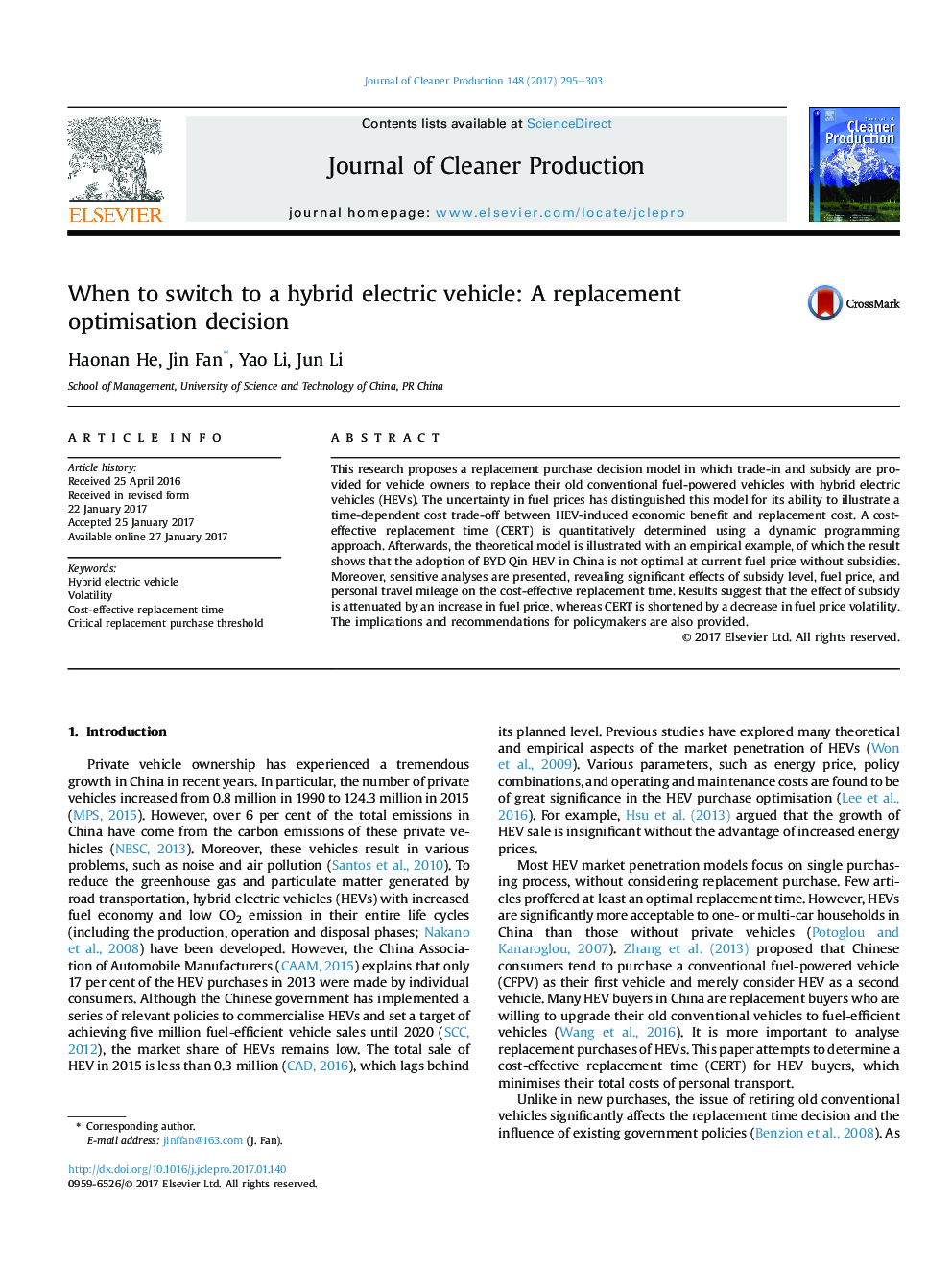| Article ID | Journal | Published Year | Pages | File Type |
|---|---|---|---|---|
| 5480193 | Journal of Cleaner Production | 2017 | 9 Pages |
Abstract
This research proposes a replacement purchase decision model in which trade-in and subsidy are provided for vehicle owners to replace their old conventional fuel-powered vehicles with hybrid electric vehicles (HEVs). The uncertainty in fuel prices has distinguished this model for its ability to illustrate a time-dependent cost trade-off between HEV-induced economic benefit and replacement cost. A cost-effective replacement time (CERT) is quantitatively determined using a dynamic programming approach. Afterwards, the theoretical model is illustrated with an empirical example, of which the result shows that the adoption of BYD Qin HEV in China is not optimal at current fuel price without subsidies. Moreover, sensitive analyses are presented, revealing significant effects of subsidy level, fuel price, and personal travel mileage on the cost-effective replacement time. Results suggest that the effect of subsidy is attenuated by an increase in fuel price, whereas CERT is shortened by a decrease in fuel price volatility. The implications and recommendations for policymakers are also provided.
Keywords
Related Topics
Physical Sciences and Engineering
Energy
Renewable Energy, Sustainability and the Environment
Authors
Haonan He, Jin Fan, Yao Li, Jun Li,
